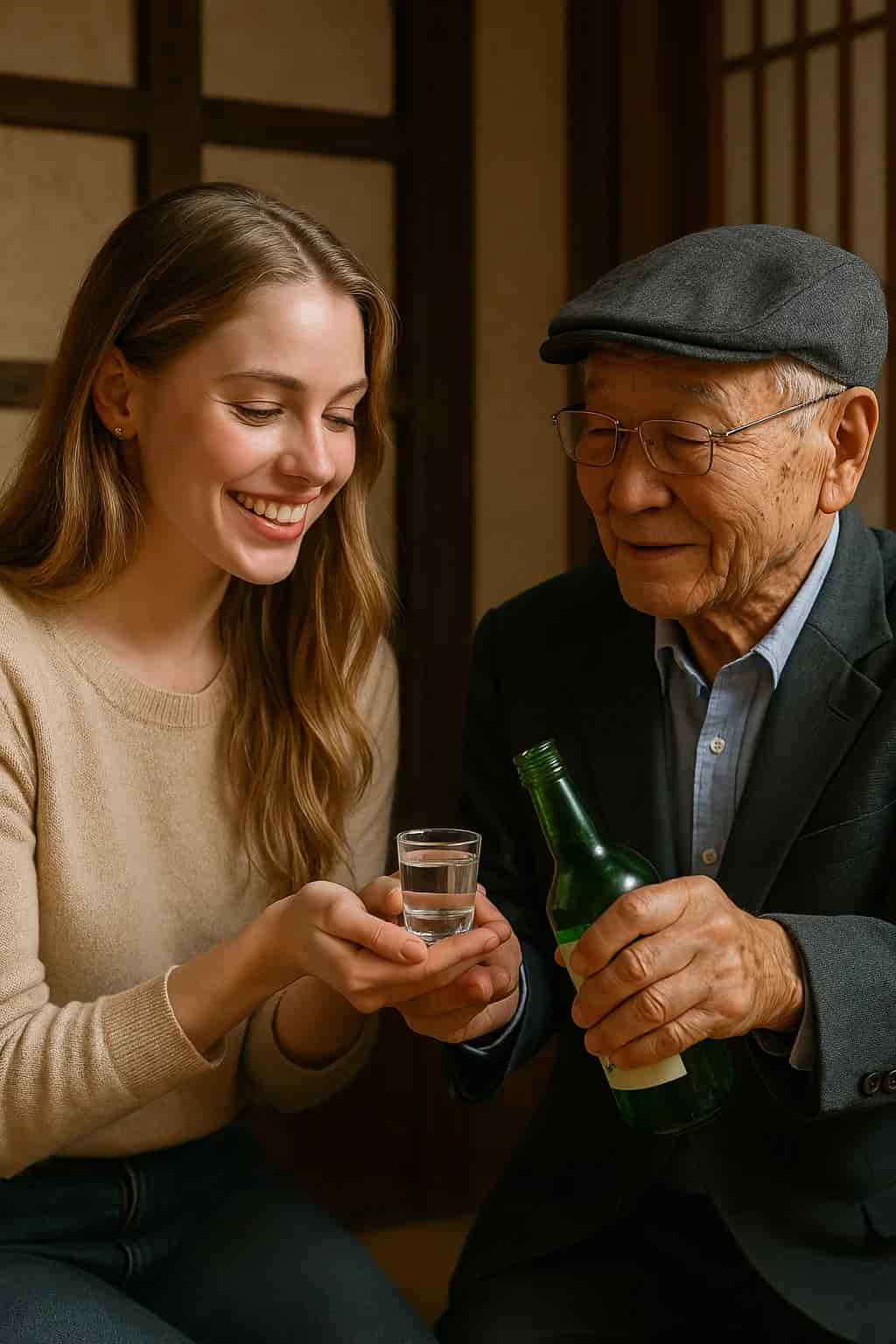Confused by Korean culture? Learn 5 common habits that often surprise foreigners, from taking off shoes to asking “Did you eat?”
Korea is a country full of rich traditions, deep respect, and unique social customs.
한국은 전통과 예절, 그리고 독특한 사회적 관습이 살아 있는 나라예요.
But for many foreigners, some of these everyday habits can feel a little… puzzling.
하지만 외국인의 시선에서는 당연하지 않은 한국 문화가 종종 혼란스럽게 느껴질 수 있죠.
Let’s explore 5 Korean cultural behaviors that often surprise visitors—and what they actually mean.
지금부터 외국인들이 자주 놀라는 한국 문화 5가지와 그 속에 담긴 의미를 알아볼게요!
1. Taking Off Shoes Indoors
실내에서는 신발을 벗는 문화
In Korean homes (and sometimes even in schools, guesthouses, or restaurants), it’s common to remove your shoes before entering.
한국에서는 집에 들어갈 때, 심지어 일부 음식점이나 학교에서도 신발을 벗는 문화가 있어요.
Foreigners often ask: “But why?”
외국인들은 종종 “왜 그래야 하죠?”라고 묻곤 하죠.
✅ It’s about cleanliness and respect for the home. Floors are often where people sit, eat, or even sleep!
👉 한국에서는 바닥에 앉거나 잠을 자는 문화가 있어, 청결과 예의를 위해 신발을 벗습니다.
Tip: If you see a line of slippers by the door, it’s your sign to take off your shoes!
현관에 슬리퍼가 있다면, 신발을 벗고 들어오라는 뜻이에요.
2. Age Determines How You Speak
나이에 따라 말투가 달라져요
In Korea, age is more than just a number—it’s how you determine whether to use formal or informal language.
한국에서 나이는 단순한 숫자가 아니라, 말투(존댓말 vs 반말)를 결정짓는 기준이에요.
It’s common to hear “몇 살이에요?” (How old are you?) within seconds of meeting someone.
처음 만난 사람에게 **“몇 살이에요?”**라고 묻는 일이 흔하죠.
✅ This helps Koreans understand how to show proper respect and build a respectful relationship.
👉 나이를 알아야 예의 있는 말과 행동을 선택할 수 있기 때문이에요.
Tip: Don’t be offended—it’s usually not a personal question, just cultural.
기분 나빠하지 마세요. 궁금해서가 아니라 문화적인 이유랍니다!
3. Always Use Two Hands
무언가를 줄 때는 꼭 두 손으로!
Giving or receiving something in Korea? Use both hands—or at least support your hand with the other.
무언가를 주거나 받을 때는 두 손으로, 또는 한 손을 다른 손으로 받쳐서 건네는 게 기본 예절이에요.
✅ This shows respect and politeness, especially when dealing with someone older or in a formal setting.
👉 특히 어른이나 상사에게는 정중함을 나타내는 필수 매너예요.
Tip: Don’t hand money or gifts casually with one hand—it can be seen as rude.
선물이나 돈을 한 손으로 툭 던지듯 주는 건 무례하게 보일 수 있어요.
4. Silence Is Sometimes the Answer
말보다 침묵이 더 많은 걸 말해요
In the West, people often fill silence with conversation. But in Korea, silence is not always awkward.
서양 문화에서는 침묵이 어색하게 여겨지지만, 한국에서는 침묵도 하나의 소통 방식이에요.
✅ Being quiet can show thoughtfulness, respect, or emotional control.
👉 조용함은 배려, 존중, 감정 절제를 의미할 수 있어요.
Especially when discussing serious topics or during conflict, Koreans may choose silence over confrontation.
특히 중요한 대화나 갈등 상황에서는 말보다는 침묵으로 감정을 조절하는 경향이 있어요.
5. “Did You Eat?” Is Not Just About Food
“밥 먹었어요?”는 정말 밥이 궁금한 게 아니에요
One of the most common greetings among Koreans is “밥 먹었어요?” (Did you eat?)
한국 사람들 사이에서는 “밥 먹었어요?”라는 말이 흔한 인사말이에요.
But don’t panic—they’re not inviting you to lunch!
그렇다고 정말 밥을 먹자거나, 먹었는지 궁금해서 묻는 건 아니에요.
✅ It’s a way of saying: “I care about you,” or “How are you?”
👉 사실은 “당신을 챙기고 있어요”, “잘 지내요?” 라는 **관심과 정(情)**의 표현입니다.
Tip: You can simply answer “네, 먹었어요!” (Yes, I did!) and smile.
그냥 웃으며 “네, 먹었어요~”라고 답하면 돼요!
Conclusion
Korean culture is built on layers of history, etiquette, and deep emotional connection.
한국 문화는 역사, 예절, 그리고 따뜻한 정서 위에 쌓여 있습니다.
What may seem strange at first will soon feel like second nature—just be open, respectful, and curious.
처음엔 낯설더라도, 열린 마음과 존중, 호기심을 가지면 자연스럽게 익숙해질 거예요.
And who knows? One day, you might find yourself offering slippers to a friend and asking,
“밥 먹었어?”
